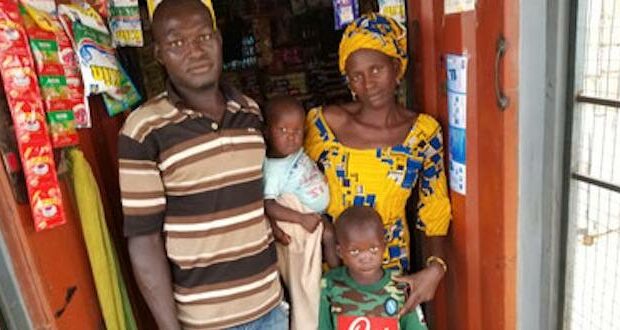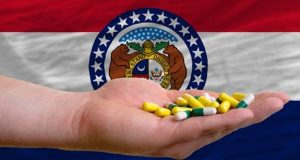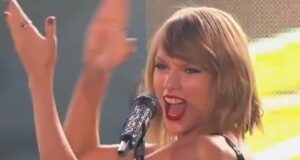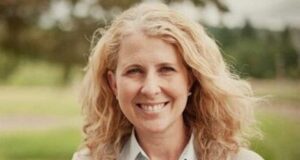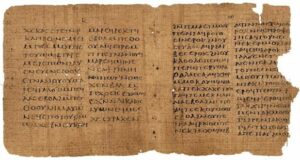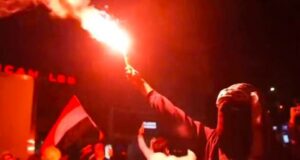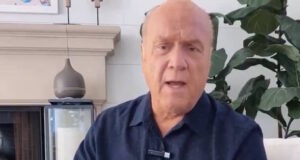“A silent genocide is going on against Christian communities in Southern Kaduna.” That’s the assessment Jonathan Asake, President of the Southern Kaduna People’s Union in Nigeria.
For seven years, Christian communities in the south of Nigeria’s Kaduna State have been under increasing attack by Fulani Muslim militias. Massacres, kidnappings, and forced displacements have taken place on a massive scale. The attacks are part of a wider campaign across Nigeria’s “Middle Belt”, the country’s central region, where hundreds of indigenous ethnic groups, mostly Christians, find themselves targeted by Fulani militias. The Southern Kaduna People’s Union (SOKAPU) is a local organization working to draw attention to this hidden crisis.
READ: Why Nigeria’s Christians now feel abandoned by the United States
In January, Jonathan Asake, the president of SOKAPU, spoke with Christian Solidarity International about the imprisonment of his organization’s spokesman, Luka Binniyat, for writing an article about a massacre of Christians in his home region. Binniyat was finally freed on bail Feb. 3. Asake also spoke about an ongoing and silent genocide against his people, and the wider political context in which it is taking place.
CSI: Thank you, Mr Asake, for joining us today. Let’s start with Luka Binniyat. Who is he? Why has he just spent three months in prison?
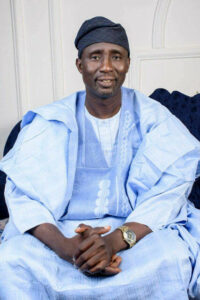
Jonathan Asake, President of the Southern Kaduna People’s Union
JA: Luka Binniyat is a journalist by profession. He is also the publicity secretary for the Southern Kaduna People’s Union (SOKAPU), an umbrella organization that I am the president of, which represents the 67 indigenous nationalities who live in the southern part of Kaduna State. In late 2017, he was imprisoned for over 100 days over a story he had written about the killings of Christians in our state. He was eventually released on bail. But the charges against him have not been dismissed to this day. This campaign against him was masterminded by the state government, under its current governor, Nasir Ahmad El-Rufai, who has been clamping down on the free press ever since he became governor.
The current case against Luka started on 4 November last year when security agents came to the SOKAPU office in Kaduna to arrest him. He called me in Abuja and told me that he was being arrested. I thought he was joking; I said, “What, again? Fine, let them take you away.” He said, “No, I’m not joking!” and he passed the phone to the security agents. That’s when I realized it was real.
I quickly got someone to follow them in a car, to make sure they were really security forces. We have had instances in the past when people have been taken like that, and that is the last you ever hear of them, and every security agency denies having them.
When Luka appeared in court a few days later, handcuffed to another criminal, he was charged with “defamation of character”, “injurious falsehood”, and “cyberstalking”. In the ninety days that followed, the government used a variety of tactics to keep him from posting bail. First, they filed charges in a low-level court, even though one of the charges was federal. When the case was finally moved to the right court, the judges repeatedly failed to show up to hearings. Finally, he was granted bail, but the conditions of the bail were so onerous that we didn’t know when we would be able to get him out. [Editor’s note: Luka was released a week after this interview, on 3 February.]

Christians were ordered off a cross-country bus, then murdered in Nigeria.
CSI: What exactly is the accusation against Luka? What did he write that was so offensive?JA: Last September, Fulani terrorists attacked Madamai village in southern Kaduna, and killed 38 people. This kind of attack has become routine; a silent genocide is going on against Christian communities in Southern Kaduna and the whole of Nigeria’s Middle Belt.
Normally, when people are killed like that, the government will use threats to force the local people to bury the dead quickly in mass graves. But this time we said, “No. We must make coffins and give these people a proper burial service, in a church.” So, we had a service on 30 September. I and the other speakers at the service spoke in anger, seeing 38 dead bodies in front of us, mostly women and children and old people who could not run. We spoke out against the government that is downplaying this genocide, instead of coming to the help of the victims.
Luka wrote an article about this event. In his article, he quoted our senator as lamenting that Kaduna State’s Commissioner for Internal Security – who is a Christian – is being used by the government to cover up the genocide. Under pressure from the government, the senator now denies saying this, and Luka has been accused of fabricating the quote.
CSI: Many people describe the attacks in your state as a conflict between “herders” and “farmers”. You instead speak of a genocide of Christians and indigenous minority groups in the region. How would you explain these attacks?
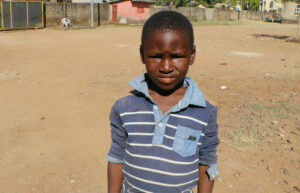 JA: I have stated my views on this very clearly in public. Nigeria’s president is Fulani. Virtually everyone that surrounds him is Fulani. The governor of Kaduna State is also Fulani, and he has not hidden his own agenda. I know why our communities are being attacked. It is to take over the lands of indigenous people and change the demographics of the region.
JA: I have stated my views on this very clearly in public. Nigeria’s president is Fulani. Virtually everyone that surrounds him is Fulani. The governor of Kaduna State is also Fulani, and he has not hidden his own agenda. I know why our communities are being attacked. It is to take over the lands of indigenous people and change the demographics of the region.
In 1804, there was a jihad in Nigeria by a Fulani warrior named Osman Dan Fodio. He wanted to drive all the way to Nigeria’s southern coast; it was said that his goal was to dip the Qur’an in the Atlantic Ocean. But he could not conquer the Middle Belt. Later, missionaries brought Christianity here, and Christianity became well-rooted in the region.
The same pattern of jihadist attacks is being repeated today. Defenceless communities are attacked, women and children are killed, other women are raped and enslaved, farmland and food reserves are destroyed, houses are burned, and finally the lands are occupied. In our state, over 108 communities have been taken over, and hundreds of thousands are displaced. Some of these people have been displaced for seven years.
The “farmers and herders” narrative is misleading. We know what a farmer-herder clash looks like; we had them when I was a kid. A nomadic Fulani herder would drive his cattle into farmland, the farmer would confront him, and they would start fighting. Usually, it was settled within the village community. What is happening today is different! These are unprovoked, premeditated attacks, by people who are well-protected, well-armed, and who get away with it. To my knowledge, no one has been prosecuted for these attacks. No one!
Every indicator points to the fact that the government knows what is happening. Let me give you an example. In May-June 2020, there were severe attacks in southern Kaduna State. The governor responded by imposing a 24-hour curfew – on the same communities that were attacked! These curfews lasted for months in some cases. People who dared to go out to look for food for their families were shot by security forces. Meanwhile, the attackers were walking around freely with their machine guns and attacked the same communities again! That alone suggests complicity on the part of the government. The instrument of government is being used to protect the perpetrators.
CSI: We’ve been talking about Nigeria’s Middle Belt, but there is similar violence elsewhere in the country, by Boko Haram in the northeast, and more recently, by “bandits” in the northwest. Many of these “bandit” groups seem to be Fulani-led, but their victims are not primarily Christians – they are Hausa Muslims. What is the connection between the massive violence in these three regions?
It’s like Frankenstein’s monster – the monster that consumes its maker. When Boko Haram started back in 2009, many northern leaders saw them as religious champions who could be used to do their own bidding. I warned at the time that a day would come when Boko Haram will have dealt with the Christians and the non-Muslims, and they would turn their guns on the Muslim communities. This is what happened.
It was the same when these “herdsmen” attacks started. I told northern leaders, “If you keep quiet, when these terrorists find that they cannot accomplish their mission, they will turn on the people who are supporting them.” And today we see the killings in Zamfara and Katsina and Kebbi and other parts of the northwest. If men and women of conscience refuse to speak out against evil when it starts, it will ultimately consume everybody.
The government is less and less able to challenge these forces. If they had dealt with them immediately, it would have been different. But now, look at how hard it was for President Buhari to label these people “terrorists” – even after they brought down an air force fighter jet!
CSI: So now they’re being called “terrorists” but not yet treated as terrorists.
JA: Exactly. The level of carnage these people are perpetuating is beyond what you can imagine. As I speak, many people in the suburbs of Kaduna are walking in the darkness towards Kaduna city. When 6pm comes, there is a mass exodus towards the city. People sleep in the city because they don’t feel safe at home.

Mass burial of women and children murdered in a midnight raid March 11, 2019 in Kajuru, a governance area in Kaduna state, North Central Nigeria. Photo: Steven Kefas in Nigeria.
The terrorists are now kidnapping people and receiving huge amounts of money for it. On 10 January in Southern Kaduna, a young man named Silas was killed in front of his pregnant wife. Then they kidnapped her and her three young children and demanded 100 million Nigerian naira in ransom. Silas’s sister called me crying in the middle of the night, asking for help. She has no one else to ask – the government leaves people to their fate. This sort of thing happens all the time.
Many journalists are afraid to report on these things. The weight is on us at SOKAPU to lead the way. We always go to the site of attacks, with cameras and journalists, to beam the news to the world of what is happening. That is why the government does not like us. But all we’re doing is reporting on the atrocities, on the genocide that is going on.
CSI: Indeed, this violence tends not to make headlines, either in Nigeria or the outside world. But western governments know very well what is going on in Nigeria. The US and the UK in particular take a strong stand – in public, at least – on human rights and religious freedom. What impact have they made in Southern Kaduna and the Middle Belt?
JA: We always feel the impact of the US government’s decisions in Nigeria. Under President Trump, we were often called in by the American embassy to give reports on the attacks on our communities, and USAID came to meet us in our offices. They listened to us and spoke about implementing projects. But under the new administration, it’s different. When Secretary of State Blinken came to Nigeria, we thought he was going to raise these issues. Instead, Nigeria was recently removed from the US’s list of “Countries of Particular Concern” for religious persecution. I don’t know what is going on. The level of religious persecution in Nigeria is unprecedented. If the US government knows this, and still makes this move, then we don’t know where else to turn to for help.
The government here was very afraid of the Trump administration, and so there was a limit to the atrocities that took place. But now the government is no longer afraid, and the atrocities are becoming so brazen.
CSI: Are US and UK government aid agencies helping on the ground?
JA: We have not seen them, truly. We had a very good meeting with USAID towards the end of the Trump administration, where they promised to help us rebuild destroyed communities. We were so happy. This is what we need, for people to return to their homes. But after the change of administration, they went quiet.
CSI: In the West, it is often said that the cause of all this violence is really climate change, that desertification is driving competition for resources. How would you respond to that?
JA: I reject that argument. Of course, the north where the herders are coming from is more of a desert, and the land to the south is greener. But we in the Middle Belt are also experiencing resource scarcity. Our population is increasing while the amount of land stays the same. What would happen if, because we wanted more land, we went to the north and started killing women and children and old people and taking over their land by force? Would any government sit back and watch that happen? No. The answer is obviously no. The problem is not desertification; the problem is that killers are not being brought to justice.
CSI: Do you see a connection with the implementation of shari’a law in Kaduna State and Nigeria’s other northern states, and the violence you are describing?
JA: The adoption of Islamic shari’a law paved the way for what we see today. The constitution of Nigeria clearly states that no religion can be adopted as an official religion, and that all Nigerians have freedom of religion. But when the northern states adopted shari’a in violation of the constitution, President Obasanjo refused to use his authority to stop it. He hoped it would just fizzle out, even though 3,000 people were killed in Kaduna State after the Christians protested the imposition of shari’a here. Boko Haram grew out of the shari’a movement in the north. People also said Boko Haram would fizzle out. It has never fizzled out and has consumed millions of Nigerians.
 Metro Voice News Celebrating Faith, Family & Community
Metro Voice News Celebrating Faith, Family & Community 
